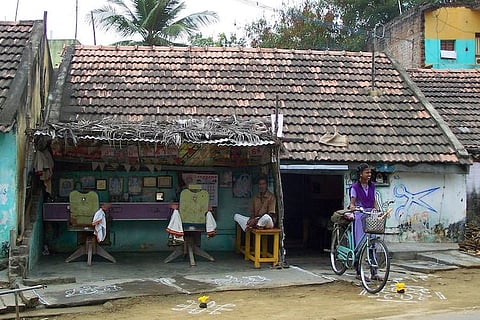

Ninety four years since the self-respect movement, aimed at achieving social equity, gained momentum in Tamil Nadu, the practice of untouchability remains rampant across the state. Information accessed via RTI queries shows that 646 villages in 20 districts of the state still ostracise people based on caste, and ironically the largest number of villages that practice untouchability has been recorded in Thiruvarur district, where DMK chief M Karunanidhi remained undefeated in two Assembly elections.
The information was sought by Dalit advocacy group Social Awareness Society for Youths (SASY) for the time period between 2014 and 2018. Over 76 RTIs were filed in 32 districts, of which only 20 have responded so far. The three details sought were – villages that practice untouchability in Tamil Nadu, districts termed vulnerable to caste atrocities, and information about special officers appointed in districts to handle caste crimes.
According to the information obtained, 158 villages in Thiruvarur had practiced untouchability in this period, followed by Sivagangai (49), Ramanathapuram (45), Theni (40), Cuddalore (38), Krishnagiri (35), Namakkal (35), Tuticorin (34), and Villupuram (32).
Villages highly sensitive to caste based atrocities included 14 in Cuddalore, eight in Salem and four in Thiruvarur. And out of the 20 districts, SASY says only Cuddalore and Dharmapuri have Special officers who coordinate between victims, the police, and district administration.
"According to our Constitution, untouchability is abolished and any atrocity against the lower castes is prohibited. In reality however what is described as atrocity in law is actually a practice of untouchability," says Pandiyan, executive director, SASY.
Explaining the reason for Thiruvarur topping the list, he says, "The entire belt, be it Thiruvarur or Thanjavur, is still an agrarian economy and feudal structures are still in place. In agriculture, caste differences are very visible in terms of work done. The cultural ethos here lends to this. Despite Karunanidhi himself contesting there multiple times, nothing has changed."
The Prevention of Atrocities against SCs and STs Act calls for half yearly reviews by a 25-member State Monitoring and Vigilance Committee (SVMC), chaired by the Chief Minister. But over the last 16 years, of the 42 meetings that should have been chaired by the Chief Minister, only three were held. Of this, the DMK held one and AIADMK held two, under Karunanidhi and Jayalalithaa respectively.
According to the Act and Rules there are also supposed to be monthly reports from the District Magistrates and quarterly review meetings at the district level by the District Monitoring and Vigilance Committee (DVMC).
"After data from all districts is collected, we are looking to make a fact sheet of the ground situation. Our aim is also to ensure that section 16 of the Atrocities Act – which calls for imposition of collective fines on people who practice untouchability – is evoked by the government in cases of caste atrocities," says Pandiyan, "So far it has not been used and we believe that this could be a way for citizens of the country to combat and eradicate caste discrimination."